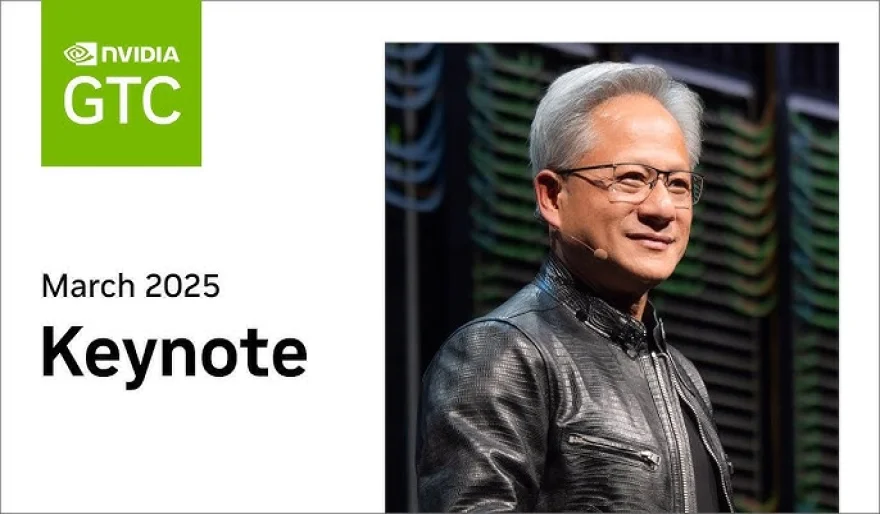Stay Ahead of the Curve
Latest AI news, expert analysis, bold opinions, and key trends — delivered to your inbox.
Nvidia’s AI and Robotics Revolution: Key Takeaways from GTC 2025
3 min read Nvidia’s GTC 2025 keynote unveiled game-changers: next-gen GPUs (Blackwell Ultra, Vera Rubin, Feynman), Isaac GR00T N1 for robotics, Newton physics engine, DGX AI workstations, and a GM partnership for self-driving cars. AI’s future is here, and Nvidia’s leading the charge. March 19, 2025 17:02
At
Nvidia’s GTC 2025 conference, CEO Jensen Huang delivered a powerhouse
two-hour keynote, dubbing the event “AI’s Super Bowl.” The announcements
spanned groundbreaking chip releases, robotics innovations, autonomous
vehicles, and more. Here’s the breakdown:
1. Next-Gen GPUs: Powering the Future of AI
Nvidia unveiled its new GPU lineup, promising massive performance leaps:
Blackwell Ultra (late 2025)
Vera Rubin (2026)
Feynman (2028)
Huang emphasized that the computational demands for AI are “easily 100x more than we thought we needed a year ago,” signaling that scaling is far from slowing down.
2. Robotics Breakthroughs: Isaac GR00T N1 and Newton
Nvidia introduced Isaac GR00T N1, the first open humanoid robot foundation model, alongside a comprehensive physical AI dataset for training robots.
But that’s not all—Nvidia also debuted Newton, a robotics physics engine developed in collaboration with Google DeepMind and Disney. The engine was demoed on stage with ‘Blue,’ a Star Wars-inspired robot, showcasing its potential for real-world applications.
3. AI Computing for Everyone: DGX Spark and DGX Station
Nvidia is bringing data center-grade AI computing to personal workstations with the new DGX Spark and DGX Station. Huang called these systems “the computer for the age of AI,” making high-performance AI accessible to a broader audience.
4. Autonomous Vehicles: Nvidia and GM Team Up
In a major partnership, Nvidia announced plans to collaborate with GM to build the automaker’s first fleet of self-driving cars. This move signals Nvidia’s growing influence in the autonomous vehicle space.
Why This Matters
Huang declared that AI is at an “inflection point,” and Nvidia’s announcements reflect the company’s ambition to dominate the AI ecosystem across industries. From cutting-edge GPUs to robotics and autonomous vehicles, Nvidia is shaping the future of AI infrastructure.
If one thing is clear, it’s this: AI innovation is accelerating, and Nvidia is leading the charge.



















 AI Agents
AI Agents